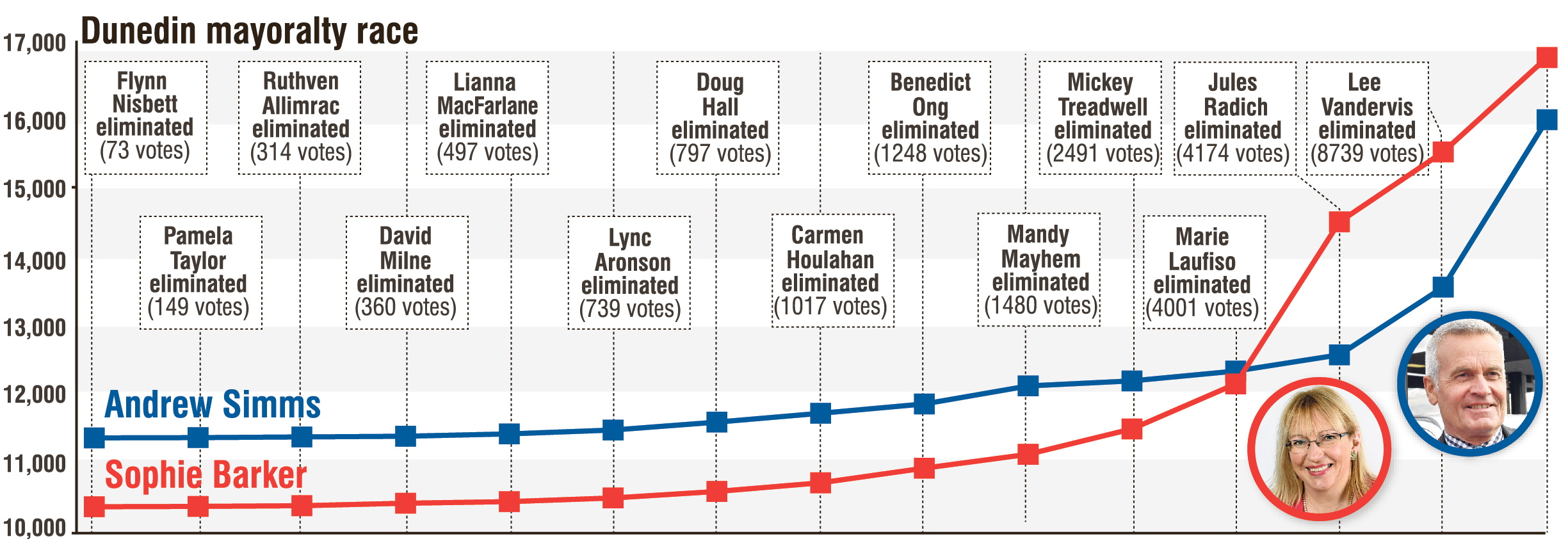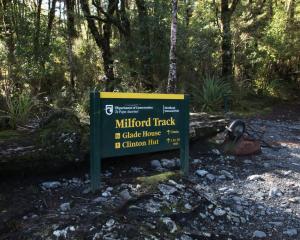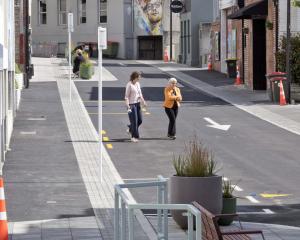
Sophie Barker had been trailing Andrew Simms in the mayoralty race before it came down to the final four candidates.
The decisive moment came when fifth-placed Marie Laufiso was eliminated.
Ms Barker took the lead and surged well ahead, and Mr Simms was then unable to haul in her majority.
What had started as a 995-vote lead for Mr Simms in a field of 16 candidates ended in a deficit of 898 votes once the field was whittled down to two — Ms Barker had won.
A mine of information is available from STV, or single-transferable vote, election results, particularly relating to reallocation of votes as the least-favoured mayoralty candidate is excluded, one by one.
STV enables voters to rank candidates in order of preference — as few or as many as they like — and second, third and fourth preferences can sometimes be crucial in a mayoralty contest.
Data from the election provided indications of where a tight race was won and lost.
Mr Simms held a lead of about 1000 votes through several rounds.
There was then a clear slide as left-leaning candidates dropped out.
He had a lead of 988 votes when Benedict Ong was eliminated after the ninth iteration.
Mr Simms’ majority over Ms Barker dropped to 694 when Mandy Mayhem was excluded and it fell to 186 after Mickey Treadwell’s exit from the race.
Cr Laufiso’s exit brought a big boost for Ms Barker — she was then 1921 votes out in front.
Mr Simms then did not benefit enough from the exclusion of incumbent mayor Jules Radich and, following that, Lee Vandervis.

The results showed essentially a two-horse race, although Cr Vandervis was in the frame at the start.
He was 3148 votes behind Ms Barker after the first round, sitting in third, but the gap between the two leading contenders and Cr Vandervis widened as the count went on.
Once Cr Vandervis was excluded, more of his votes went to Mr Simms than Ms Barker.
However, many votes were not reallocated to either candidate.
By the time Cr Vandervis was excluded, he had accumulated 8739 votes.
Mr Simms pointed out more than half of them "went into the bin", instead of to candidates who remained in the race.
"The mayoral race was ultimately decided by Lee’s supporters, and in particular by the advice circulating to only cast one vote for mayor."
In a blog after the election, Cr Vandervis said the electoral system had major practical drawbacks, including that it "punishes candidates with strong views or policies, in favour of waffling or fence-sitting candidates".
Voters were asked to accept "an end result from screeds of iterative number charts with subsequent preference votes bouncing all over them".
Dunedin should go back to the first-past-the-post system, he said.
Ms Barker said she thought STV was a fairer system because it meant the candidate with the most overall support was elected.












